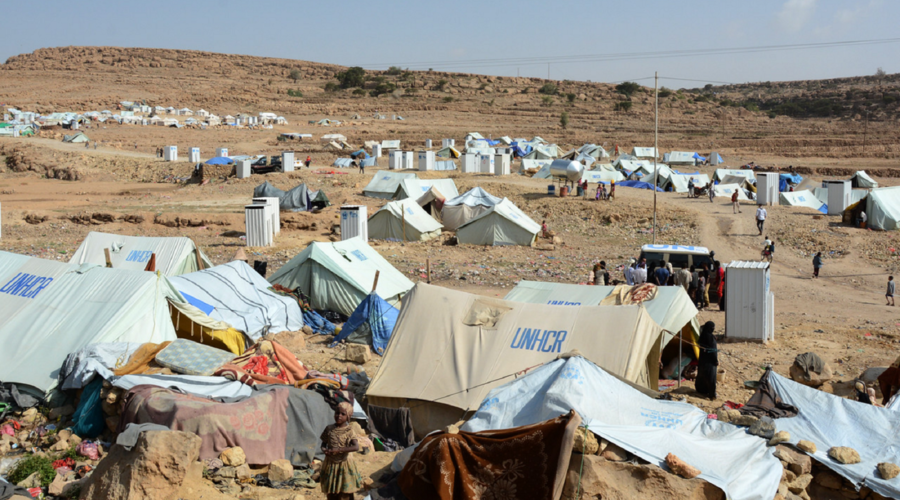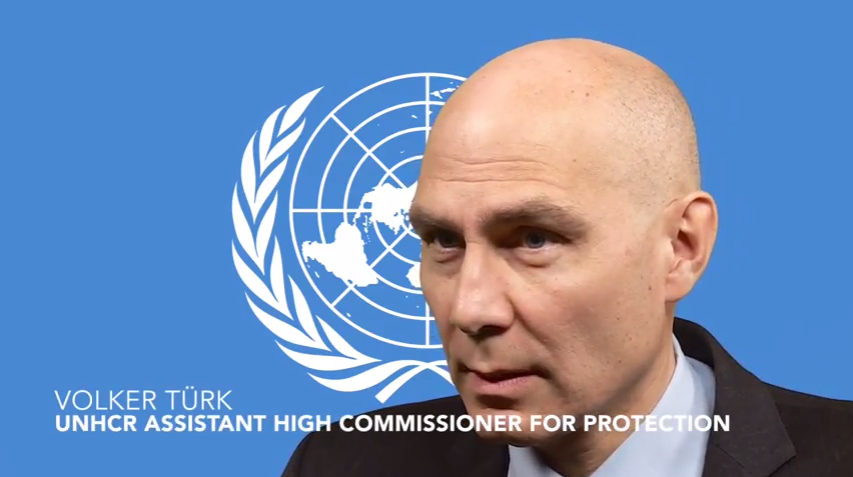Whilst protection is primarily the duty of member states and the parties to conflicts, Humanitarian Coordinators (HCs) and Humanitarian Country Teams (HCTs) are responsible for ensuring that protection is at the heart of the humanitarian response. As the top strategic body within an interagency response, they have leadership and advocacy responsibilities that cannot be delegated to the Protection cluster or an individual agency.
The importance of Humanitarian Country Teams fulfilling their responsibilities on protection was highlighted during the Sri Lanka crisis in 2009, which led to the Secretary General’s 2012 Internal Review Panel and the UN Human Rights Up Front Action Plan. This expectation is also reflected in the IASC Principals Statement on the Centrality of Protection in humanitarian action from December 2013, as well as various IASC and Global Protection Cluster policies and guidance.

The ‘Protection Pyramid’ illustrates how the Humanitarian Coordinator and the Humanitarian Country Team in an operation should provide clear direction on how to address the 2 or 3 most critical protection concerns through high-level advocacy and operations. The Protection cluster and sub-clusters support this function by compiling the analysis and facilitating protection programming, whilst the Inter-Cluster Coordination Group (ICCG) ensures that protection mainstreaming is put into practice by the different clusters.
Practical steps that Humanitarian Coordinators and Humanitarian Country Teams can take to put their protection responsibilities into practice are set out in the note produced by the P2P team and the Global Protection Cluster: The Centrality of protection in practice: Practical steps for HCs and HCTs. The Resident and Humanitarian Coordinator in Iraq, Lise Grande, also discussed these steps in a webinar: Protection of Civilians: Mission Impossible? Humanitarian Leadership in Action webinar. They include:
- Develop a short and flexible HCT protection strategy with 2 or 3 clear protection priorities. In a dedicated HCT meeting or workshop, use the analysis of the Protection Cluster to inform the selection of the 2 or 3 most critical protection priorities. Constitute a small team with the Protection Cluster and sub-cluster lead agencies, as well as NGOs, to draft the strategy which should be short, flexible and realistic. (Read the Provisional Guidance on HCT Protection Strategies)
- Include protection as a standing item on the HCT agenda and have the agency lead for protection presenting a Critical Protection Issues (CPI) Note. The Note can be prepared by the Protection Cluster Coordinators and include actions for HCT members. E.g. the Iraq CPI Note.
- Coordinate and conduct high-level advocacy on protection as a team. Using the HCT Protection Strategy and CPI Note, convene a small core group of HCT members to coordinate advocacy and representation. As it was done in Iraq, establish or engage existing networks of influential stakeholders to conduct advocacy.
- Ensure that protection is prioritised in operations and mainstreamed. Task the ICCG to ensure protection is mainstreamed across the clusters, through clear protection outcomes in the Humanitarian Response Plan. Prioritise funding for concrete front-line protection projects and ensure that the Protection cluster compiles comprehensive protection analysis.
- Use an international humanitarian law framework to advocate on the protection of civilians. Engage OCHA and other humanitarian Civil-Military Coordination staff to support outreach and influence the operating procedures and practices of military and security actors. Task a body to prepare short, factual updates on how civilians are being affected by the conduct of hostilities.
- Promote the use of a framework that provides practical guidance to frontline humanitarian workers on how to deal with the operational dilemmas that they face. The framework should enable humanitarians to become familiar with protection issues, so they can act in a timely and predictable manner when faced with a dilemma.





